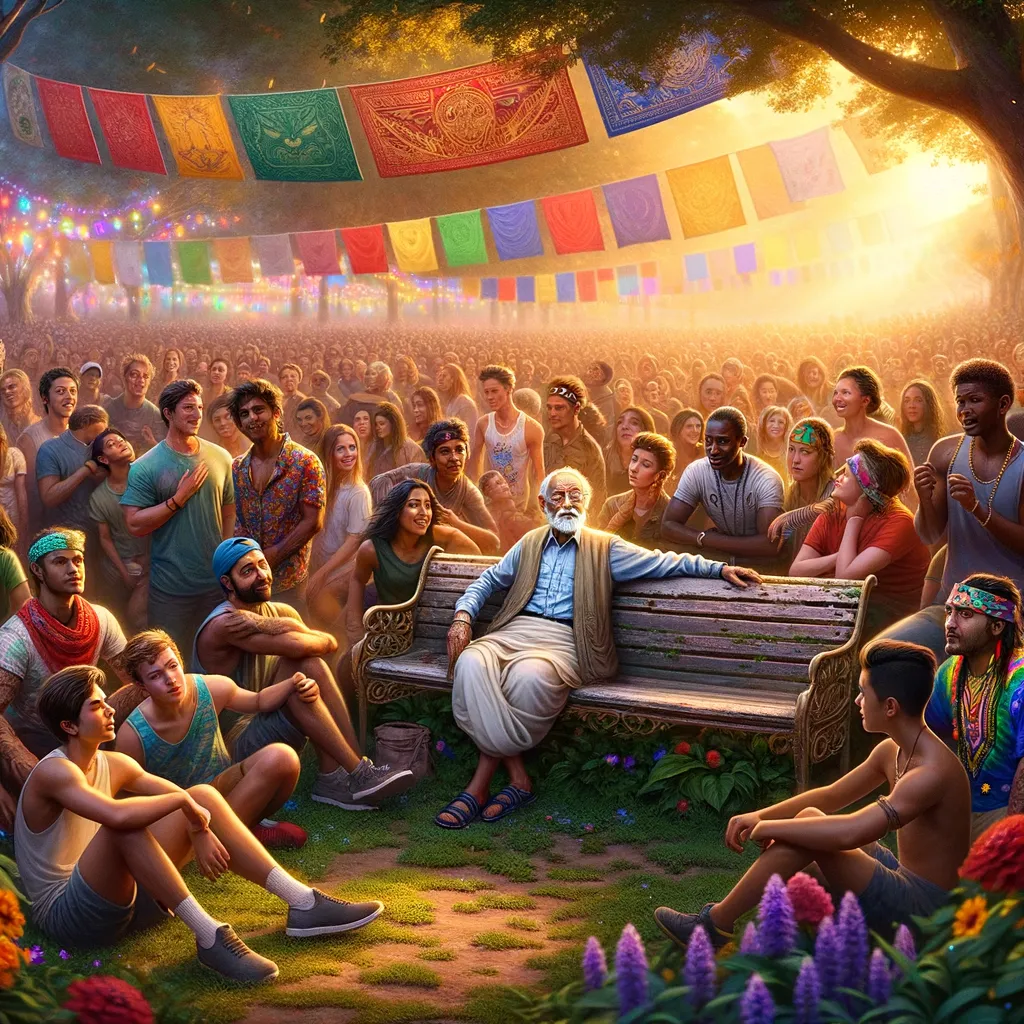Unexpected Bonds: A Day Compassion Changed Everything
On a sweltering afternoon in a small town, the air buzzed with laughter and community spirit, yet an unsettling tension loomed just beneath the surface. As the festivities unfolded, a group of teenagers turned their cruel attention to an elderly man sitting alone, their laughter cutting through the cheerful atmosphere like a knife. Just when it seemed that apathy would reign, a compassionate woman emerged, her calm words weaving stories of empathy that began to unravel the teenagers’ bravado. In a stunning twist, the elderly man, inspired by her courage, shared his own poignant tales, transforming mockery into understanding and forging unexpected bonds among the crowd. By day’s end, the park morphed from a stage of ridicule to one of connection, leaving a lasting impression that challenged the very essence of compassion and the courage required to confront indifference.
In the memory of June 7, 2005, I can still feel the weight of that humid afternoon as it settled over the small town where I grew up. The sun hung low, casting long shadows that danced across the pavement, and the air was thick with anticipation. A community gathering was underway, an annual event meant to celebrate the bonds that held us together. But beneath the cheerful veneer of laughter and camaraderie, an undercurrent of tension lurked, hinting at a conflict that would unfold and change how I viewed compassion forever.
As families milled about, sharing homemade pies and stories, I noticed a group of teenagers huddled near the edge of the park. Their laughter was sharp and cutting, a stark contrast to the soft hum of conversation around the picnic tables. I had seen them before—wild-eyed and rebellious, they were known for their outlandish pranks and their disregard for the unwritten rules of our town. But that day, their focus turned to a solitary figure: an elderly man sitting alone, his eyes lost in the distance, a world apart from the festivities.
The teenagers began to mock him, their voices rising like a cacophony of daggers. They imitated his gait, exaggerated his gestures, and laughed as if they were the architects of some grand joke. I felt my heart race, caught in a whirlwind of emotions. Anger bubbled up within me, a fierce protective instinct for a man I had never spoken to. But what surprised me most was the palpable apathy of those around me, who either turned a blind eye or chose to join in the laughter, as if participation in cruelty was the easier path.
Just when I thought the situation could not worsen, a woman emerged from the crowd. She was a mother, known for her kindness and warmth, and her presence seemed to radiate an undeniable strength. Without hesitation, she approached the group, her voice calm yet firm. Instead of chastising the teenagers with anger, she spoke to them about empathy, weaving stories of her own childhood, where kindness had turned her own pain into a source of strength. Her words held a quiet power, compelling the young mockers to reflect rather than react.
In that moment, something shifted in the air. The teenagers, once so confident in their cruelty, began to squirm. They exchanged glances, their bravado fading like the setting sun. I watched as they shifted from laughter to contemplation, their faces reflecting a dawning realization—this was not merely a game. The elderly man, who had been the target of their mockery, looked up, his expression transforming from confusion to understanding. In that fleeting moment, a bridge was built, forged from compassion and the courage to stand against the tide of indifference.
As the woman walked away, I felt a wave of admiration wash over me. The confrontation had not been one of fists or fury but of vulnerability and connection. It was a powerful lesson in the strength of compassion, showing that even in a world often resistant to kindness, a single voice could echo loudly enough to spark change. The atmosphere shifted, and the laughter that once echoed through the park took on a different tone—one of reconciliation rather than ridicule.
But the most unexpected twist came when the elderly man, emboldened by the woman’s intervention, stood up. He approached the group of teenagers, his voice steady as he shared a story of his own youth, filled with both triumph and tragedy. The tales of his struggles and victories resonated deeply, unraveling the barriers of age and experience that had separated them. As he spoke, a curious bond formed, one built on shared humanity, igniting a sense of belonging that had long been absent.
By the end of the day, the park had transformed from a battleground of mockery into a sanctuary of understanding. The teenagers, once lost in their bravado, now found themselves engaged in genuine conversation with the elderly man. They laughed together, no longer as adversaries but as fellow travelers on life’s winding road. It was a sight that lingered in my mind long after the sun dipped below the horizon, a vivid reminder of the power of compassion to transcend generational divides.
As I reflect on that day, I am left with a profound question: What does it truly mean to extend compassion in a world that often seems devoid of it? In a society quick to judge and slow to understand, how can we cultivate the courage to confront cruelty and foster connection? This experience became more than just a moment in time; it became a call to action, urging me to seek understanding in the most unexpected places. And in that pursuit, perhaps we all can discover the transformative power of compassion, igniting a spark that can illuminate even the darkest corners of our world.
In the heart of a small town, a moment of compassion turned mockery into connection, revealing the profound strength found in vulnerability and understanding.



